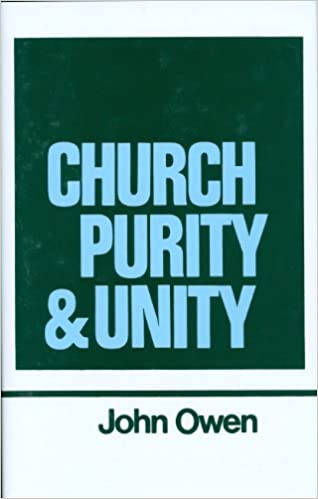A Brief Book Summary from Books At a Glance
by Steve West
Editor’s Note: Most of our readers will already be at least somewhat acquainted with John Owen (1616-1683), “the prince of Puritans,” but it is not likely that many have read him extensively. His works are not only voluminous – they are tightly packed and deeply considered. Owen is neither quick nor light reading!
Today we continue our year-long series of summaries of Owen’s famous works. We trust these will be of help in introducing and/or increasing your acquaintance with this giant Puritan theologian.
Summary, Part 1
A Discourse concerning Liturgies, and Their Imposition
Chapters I & II
God laid many regulations and laws upon the people in the Mosaic era, and over the centuries until the time of Christ people added more and more restrictions, creating tremendous burdens of law-keeping. In Christ, there was the first taste of genuine liberty. Christ rejected the rules of men, but he completely fulfilled the real obligations of the Law. There is complete liberty of conscience in true worship because of the work of Christ. In order not to cause offense, the apostles kept up the observance of many of the ceremonial laws, yet when certain Jews taught that such observances of rituals and circumcision were required for salvation, the apostles opposed them with the gospel of Jesus Christ. As the apostle to the Gentiles, Paul had to lay out these truths with clarity in the midst of controversy, and Acts 15 shows how the apostles agreed that the time had come to move beyond the observance of the old rituals. It was thus by degrees and over time that Christ’s disciples were brought into the fullness of the freedom he had secured for them. When someone is truly converted in Christ, the Spirit gives them a sense of freedom that allows them to remove the yoke of legalism and bondage.
As the Word of the Father and as the final source of revelation, the instructions of Christ for worship will endure to the end of the age. The moral law of God as revealed to Moses was not in the least abrogated or altered by Christ. What Christ taught in terms of ceremony and worship was little in number and easy to observe; he wanted a system of worship which was a joy and not a burden for his people. It is sad to see how some people have added burdensome rules to the simple worship instituted by Christ, and have invented elaborate rituals and observances which are completely foreign to his teachings. Human beings can invent rituals, but the ones instituted by Christ were instituted in his perfect divine wisdom. Christ knew exactly the best way to link ordinances and means with their spiritual significance. The three principal things Christ ordained in public worship were the preaching of the word, the administration of the ordinances, and the exercise of discipline. Christ ordained that worship be conducted through spiritual power and gifts, and he put in place officers in the church to help build up the body through the grace and gifts that Christ himself gives them. Until the end of the world, the church is to follow Christ’s precepts and ordinances, and we are to trust that he will give the necessary gifts to his people until he returns. . . .
[To continue reading this summary, please see below....]The remainder of this article is premium content. Become a member to continue reading.
Already have an account? Sign In
